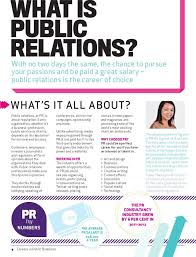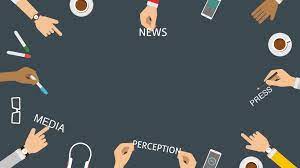Unlocking Success: The Strategic Role of a Financial PR Consultant in Today’s Business Environment
The Role of a Financial PR Consultant in Today’s Business Landscape
In the fast-paced and competitive world of finance, maintaining a positive public image and effective communication with stakeholders is crucial for success. This is where a Financial PR Consultant plays a vital role.
Financial PR Consultants are experts in managing the reputation and communication strategies of financial institutions, investment firms, banks, and other related businesses. They work to enhance the visibility and credibility of their clients within the financial industry and among key audiences.
One of the primary responsibilities of a Financial PR Consultant is to craft compelling narratives that highlight their clients’ strengths, achievements, and market positioning. They develop tailored communication plans that align with the business objectives and help build trust with investors, analysts, regulators, and the media.
Financial PR Consultants also play a key role in crisis management. In times of financial turbulence or negative publicity, they provide strategic counsel to mitigate reputational damage and navigate through challenging situations effectively.
Furthermore, Financial PR Consultants monitor industry trends, regulatory changes, and market developments to provide timely insights and guidance to their clients. They help businesses stay ahead of the curve by identifying opportunities for thought leadership and proactive engagement with stakeholders.
Overall, the role of a Financial PR Consultant is essential in shaping how financial institutions are perceived by the public and maintaining strong relationships with key stakeholders. Their expertise in communication strategy, media relations, investor relations, and crisis management makes them valuable partners in achieving long-term success in today’s dynamic business landscape.
Understanding the Role and Impact of Financial PR Consultants: FAQs and Insights
- What does a Financial PR Consultant do?
- Why is Financial PR important for businesses?
- How can a Financial PR Consultant help in building a positive public image?
- What are the key services offered by Financial PR Consultants?
- How does crisis management play a role in financial PR consulting?
- What qualifications and experience are required to become a Financial PR Consultant?
- How can businesses measure the success of their financial PR strategies?
- What trends are shaping the future of financial PR consulting?
What does a Financial PR Consultant do?
A Financial PR Consultant plays a crucial role in managing the reputation and communication strategies of financial institutions and related businesses. They are responsible for crafting compelling narratives that highlight their clients’ strengths, achievements, and market positioning. Financial PR Consultants develop tailored communication plans to enhance visibility, build credibility with stakeholders, and foster trust with investors, analysts, regulators, and the media. Additionally, they provide strategic counsel in crisis management situations, monitor industry trends and regulatory changes, and offer timely insights to help businesses navigate the complex financial landscape effectively. Overall, a Financial PR Consultant’s expertise in communication strategy, media relations, investor relations, and crisis management is instrumental in shaping positive perceptions of their clients within the financial industry.
Why is Financial PR important for businesses?
Financial PR is crucial for businesses as it plays a pivotal role in shaping their reputation, credibility, and relationships with stakeholders. Effective financial PR strategies help businesses communicate their key messages clearly and authentically to investors, analysts, customers, and the wider public. By enhancing visibility and building trust through strategic communication, businesses can attract investment, strengthen market positioning, and navigate through challenging situations with confidence. Financial PR consultants bring expertise in managing communication in the fast-paced financial landscape, helping businesses stay competitive and resilient in today’s dynamic business environment.
How can a Financial PR Consultant help in building a positive public image?
A Financial PR Consultant plays a crucial role in building a positive public image for their clients by leveraging strategic communication tactics and industry expertise. They craft compelling narratives that highlight the strengths and achievements of the business, positioning it in a favourable light within the financial industry and among key stakeholders. Through targeted media relations, thought leadership initiatives, and proactive communication strategies, Financial PR Consultants help to enhance visibility, credibility, and trust with investors, analysts, regulators, and the wider public. By effectively managing the reputation of their clients and providing guidance on transparent communication practices, Financial PR Consultants contribute significantly to fostering a strong and positive public image for financial institutions in today’s competitive business landscape.
What are the key services offered by Financial PR Consultants?
Financial PR Consultants offer a range of key services to help financial institutions and businesses effectively manage their communication strategies and enhance their reputation. Some of the core services provided by Financial PR Consultants include developing tailored communication plans, crafting compelling narratives to showcase clients’ strengths, engaging with investors, analysts, and the media, monitoring industry trends and regulatory changes, providing crisis management support, offering strategic counsel during challenging situations, and identifying opportunities for thought leadership and proactive stakeholder engagement. These services are essential in building trust, maintaining a positive public image, and achieving long-term success in the competitive financial landscape.
How does crisis management play a role in financial PR consulting?
Crisis management plays a critical role in financial PR consulting by helping businesses navigate through challenging situations that could potentially impact their reputation and financial stability. Financial PR consultants are experts in developing proactive crisis communication strategies to address unforeseen events such as market downturns, regulatory issues, fraud allegations, or negative media coverage. By providing timely and strategic guidance, these professionals help businesses effectively manage crises, protect their brand image, maintain investor confidence, and uphold trust with stakeholders. Through swift and transparent communication, financial PR consultants play a key role in mitigating reputational damage and steering companies towards a path of recovery and resilience in the face of adversity.
What qualifications and experience are required to become a Financial PR Consultant?
To become a Financial PR Consultant, a combination of qualifications and experience is essential. Typically, candidates are expected to have a degree in a relevant field such as communications, public relations, marketing, or finance. Additionally, obtaining professional certifications in public relations or financial services can be beneficial. Experience in the financial industry, either through internships or entry-level positions, is highly valued. Strong communication skills, strategic thinking, relationship-building abilities, and a deep understanding of financial markets are key attributes that employers look for in potential Financial PR Consultants. Continuous learning and staying updated on industry trends are also crucial for success in this competitive field.
How can businesses measure the success of their financial PR strategies?
Businesses can measure the success of their financial PR strategies through various key performance indicators (KPIs) that align with their communication objectives. Metrics such as media coverage, brand sentiment analysis, website traffic, social media engagement, investor relations feedback, and financial performance indicators can provide valuable insights into the effectiveness of PR efforts. By tracking and analysing these metrics over time, businesses can assess the impact of their financial PR strategies on enhancing brand reputation, increasing stakeholder trust, driving business growth, and ultimately achieving their communication goals.
What trends are shaping the future of financial PR consulting?
The future of financial PR consulting is being shaped by several key trends that are redefining the industry landscape. One significant trend is the increasing importance of digital communication channels and social media platforms in reaching and engaging with diverse audiences. With the rise of digitalisation, financial PR consultants are adapting their strategies to leverage these platforms effectively for brand building and reputation management. Another trend is the growing emphasis on transparency and authenticity in communication, as stakeholders demand more openness and accountability from financial institutions. Additionally, the integration of data analytics and technology into PR practices is enabling consultants to measure the impact of their efforts more accurately and tailor strategies based on real-time insights. These trends highlight the evolving nature of financial PR consulting and the need for consultants to stay agile and innovative in navigating this dynamic environment.





